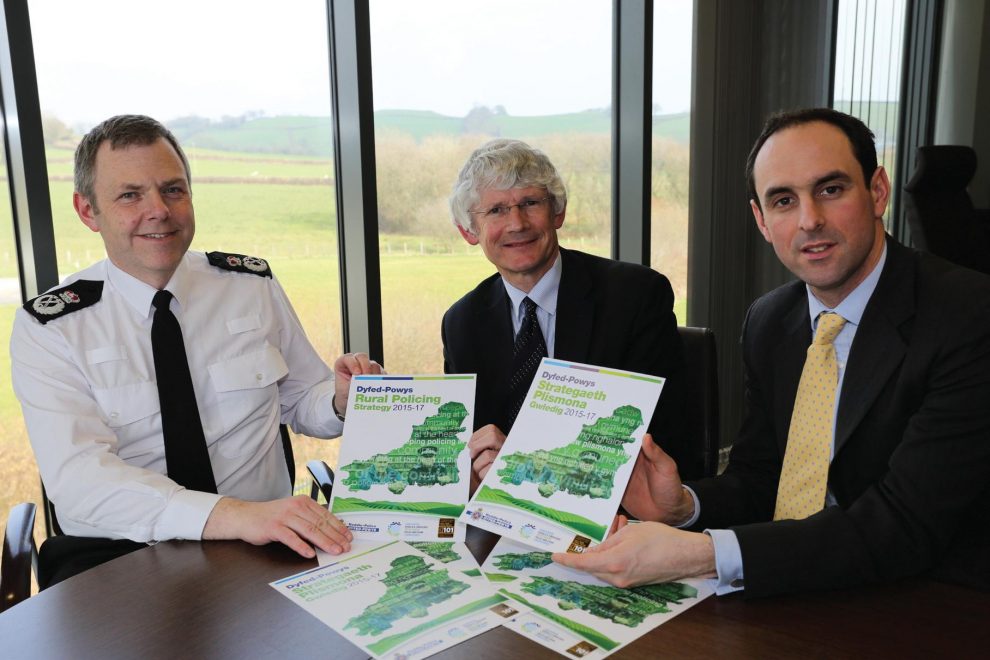
PREVENTION, intelligence, enforcement and reassurance are the four key themes in a new plan from Dyfed Powys Police on how we are going to improve the way we safeguard rural communities. Chief Constable Simon Prince said: “Policing our rural communities can be a challenge because each area has a different make up and needs for our services. Over the last year we have spoken to farmers unions, community groups, charities and other public sector agencies to gather as many comments and ideas as possible.
I want our rural policing to focus on building on the trust and sharing of local information that already exists with residents, small businesses and other agencies and community groups. There are additional challenges in rural communities compared to our other areas.
Opportunist and acquisitive crime on farms and small holdings present a significant threat. The loss of equipment, metal and livestock may not be noticed immediately, and its detection can often be diffi cult and it has an impact on people’s livelihoods. The poaching of fish, deer and hare can lead to other crimes like public order offences, acquisitive crimes like fuel theft and farm crime and other damage to the natural environment. There are also many similarities such as anti-social behaviour, hate crimes and other crimes that do not just aff ect towns and more urban areas like domestic violence, drink driving, people speeding on our roads and business crime. These affect people living throughout the whole of Dyfed Powys.
We also have to remain alert as our remote and isolated locations can be attractive for organised crime groups. They can be seen as places where these groups perceive they can operate unnoticed.” Superintendent Chris Curtis is leading the delivery of the plan and said that: “There are already some excellent examples of rural policing taking place in our force area. It my job to make sure that we share what works with other teams and community groups throughout Dyfed Powys. We have spoken to the two farmers unions to ask for their help with some of this work, and they have both given us their full support, for which I am very grateful. We have put together a delivery plan that outlines what we will be doing over the coming months to ensure that we reach out to the public and build on the positive feeling they have for their local police teams. We have four headings that sum up the improvements that we will make.
The headings are prevention, intelligence, enforcement and reassurance. Each one has a list of things that will be done and include: Crime prevention packs with information on what people can do to keep themselves and their property safe; better use of watch schemes like farm watch and neighbourhood watch; better use of social media and sharing more stories with the local media and the community directly; going to where people gather and speaking to them as well as having meetings in the offices of local businesses, groups and farming unions and better use of new mobile police stations.
We are also recruiting more special constables from our rural communities who will volunteer in their towns and villages. We have also changed the training programme so it is delivered in various locations through the force area, consequently making it easier to attend. We are identifying local experts within teams who come from rural or farming backgrounds and stationing offi cers and PCSOs in the communities that they live. There is a lot happening to improve the way we safeguard our rural communities and over the coming months people should be able to see the diff erence in the towns and villages where they live.”
















Add Comment